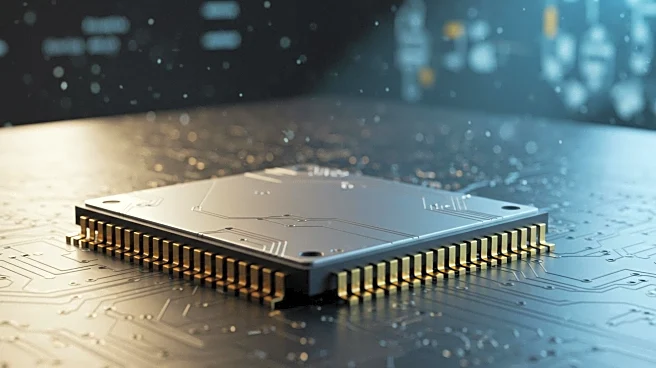What's Happening?
The U.S. government has acquired a 10% stake in Intel, marking a significant move by the Trump administration to exert influence over the private sector. This acquisition involved an $8.9 billion investment in Intel's common stock, with the government purchasing 433.3 million shares at a discounted price of $20.47 per share. The funds for this investment were sourced from grants under the CHIPS Act and additional government awards aimed at securing chip production. Despite this substantial stake, the government will not have a board seat or governance rights within Intel. President Trump highlighted the deal as beneficial for both the U.S. and Intel, emphasizing the strategic importance of maintaining advanced chip manufacturing capabilities domestically.
Why It's Important?
This development underscores the U.S. government's strategic interest in bolstering domestic semiconductor manufacturing, a critical industry for national security and technological leadership. By acquiring a stake in Intel, the government aims to ensure that cutting-edge chip production remains within the U.S., reducing reliance on foreign manufacturers. This move could have significant implications for the semiconductor industry, potentially influencing market dynamics and encouraging further investments in domestic manufacturing capabilities. It also reflects a broader trend of government intervention in key industries to safeguard national interests.
What's Next?
The acquisition may prompt reactions from other semiconductor companies and industry stakeholders, potentially leading to increased collaboration or competition in the sector. The government's involvement could also influence Intel's strategic decisions, particularly in areas related to research and development and supply chain management. Additionally, this move might set a precedent for future government investments in other critical industries, as the U.S. seeks to enhance its technological and economic resilience.











